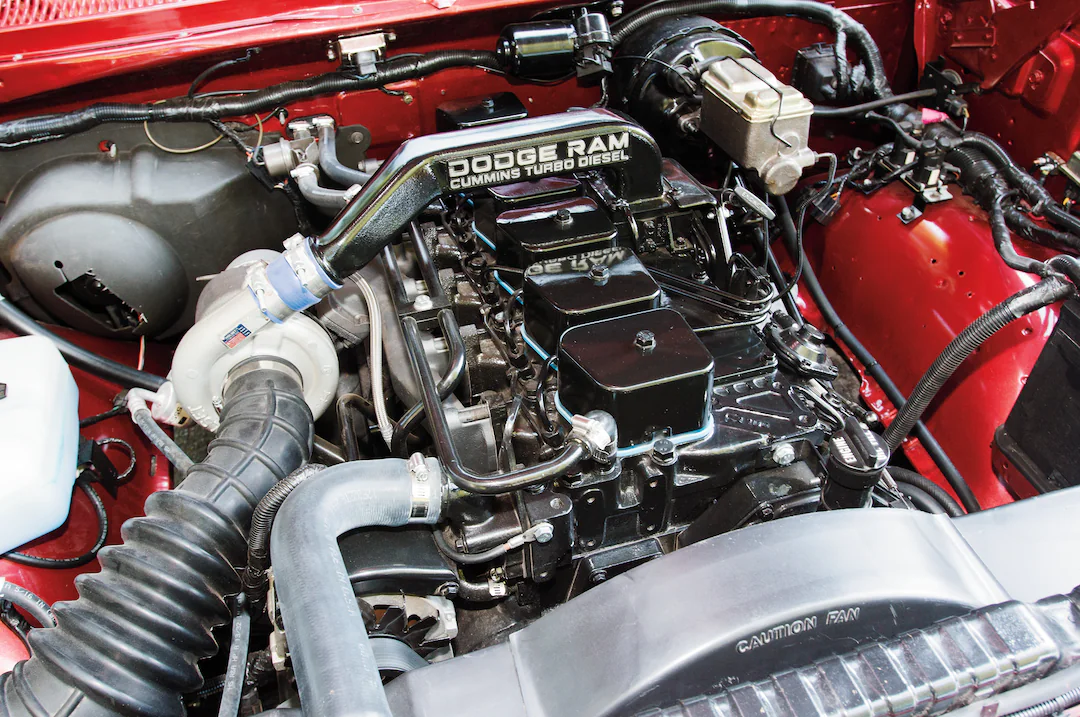That brand new diesel truck you just bought? Someone already filled your head with myths that could cost you thousands in unnecessary maintenance. Diesel engines power 98% of all commercial trucks in America for good reason – these powerhouses deliver unmatched performance and longevity when properly maintained. Yet confusion about diesel care spreads faster than oil through an engine. This guide busts 8 expensive diesel myths debunked (with some help from experts like MotorTrend and the Argonne National Lab) that mechanics and parts stores keep pushing. You’ll learn the truth about maintenance intervals, fuel additives, and engine modifications that could save your engine and your wallet.
8. Diesel Engines Are Way Dirtier Than Gasoline Engines

The claim that diesel engines are inherently dirtier than gasoline engines oversimplifies the issue. Modern diesel engines, especially those manufactured after 2007, meet stringent emissions standards and are equipped with advanced technologies like diesel particulate filters (DPFs) and selective catalytic reduction (SCR) systems. These innovations significantly reduce harmful emissions such as nitrogen oxides (NOx) and particulate matter, making some modern diesel engines comparable to some gasoline engines. Additionally, diesel engines emit less carbon dioxide (CO2) per mile due to their higher fuel efficiency, which is a critical factor in reducing greenhouse gas emissions. While older diesel engines were indeed more polluting, advancements in technology have worked to address many of these concerns. It’s important to differentiate between outdated models and modern diesels when discussing environmental impact.
7. Diesel Fuel Is More Expensive, So Diesel Engines Cost More to Run

While diesel fuel often costs more per gallon than gasoline due to higher taxes, refining costs, and seasonal demand fluctuations, diesel engines’ superior fuel efficiency offsets this expense. Diesel engines can achieve up to 40% greater efficiency compared to gasoline engines, meaning they require less fuel to travel the same distance. For instance, heavy-duty trucks and long-distance vehicles benefit significantly from this efficiency, reducing overall operational costs despite higher fuel prices. Additionally, diesel engines tend to last longer and require less frequent maintenance, further balancing out the cost equation over time. The upfront cost of diesel fuel may be higher, but the long-term savings in fuel consumption and engine durability make it a cost-effective choice for many applications.
6. Diesel Engines Are Less Powerful

Diesel engines are often misunderstood as being less powerful than gasoline counterparts. In reality, they excel in producing torque rather than horsepower, which is why they are widely used in heavy-duty applications like towing and hauling. For example, a turbocharged diesel engine can generate immense low-end torque, making it ideal for tasks requiring significant pulling power. While naturally aspirated diesels may produce less horsepower compared to gasoline engines of similar size, modern turbocharged diesels deliver competitive performance. Vehicles like the BMW M340d demonstrate this balance with 516 lb-ft of torque compared to the gasoline M340i’s 369 lb-ft. Diesel’s focus on torque rather than high-revving horsepower makes it uniquely suited for specific needs rather than being inherently “less powerful.”
5. Diesel Engines Are Noisy and Rough

Diesel engines have historically been louder than gasoline engines due to their higher compression ratios and mechanical components like injectors and turbochargers. However, advancements in technology have made modern diesels significantly quieter. Features like staged fuel injection systems and better sound insulation have reduced noise levels dramatically. For example, newer diesel vehicles are now quieter than older models by a wide margin and can rival gasoline-powered cars in terms of cabin comfort. While some noise remains due to the nature of diesel combustion, it is no longer a major drawback for most drivers. These improvements ensure that modern diesels provide a smooth driving experience without the roughness associated with older designs.
4. Diesel Engines Don’t Do Well in Cold Weather

Diesel engines can face challenges in cold weather due to the properties of diesel fuel, which thickens at low temperatures. However, modern solutions like glow plugs, block heaters, and cold flow additives ensure reliable performance even in extreme conditions. Glow plugs preheat the combustion chamber to aid ignition, while cold flow improvers prevent fuel gelling that could clog filters. Many manufacturers also design their diesel vehicles with advanced starting systems tailored for winter climates. With proper maintenance and these technologies in place, modern diesel engines perform reliably in cold-weather environments. Their durability and efficiency remain unaffected when equipped for such conditions.
3. Diesel Engines Have Short Lives

Contrary to this myth, diesel engines often outlast their gasoline counterparts by a significant margin. Built with robust components designed to handle high compression ratios and heavy-duty use, many diesel engines can exceed 500,000 miles with proper maintenance. Commercial trucks frequently achieve over one million miles before requiring major overhauls. For example, popular light-duty truck diesels like Ford’s Powerstroke or RAM’s Cummins routinely surpass 300,000 miles without significant issues. This longevity stems from lower operating RPMs and better lubrication properties of diesel fuel. While other vehicle components may wear out first, the engine itself remains a reliable workhorse for years.
2. There Are Limited Uses for Diesel Engines

Diesel engines power far more than just trucks and tractors; their versatility spans numerous industries. They are essential for construction equipment like bulldozers and cranes, marine vessels such as cruise ships and submarines, and even backup generators for hospitals and other critical facilities. Their high torque output makes them ideal for heavy loads across various terrains. Additionally, many passenger vehicles in Europe rely on diesel due to its superior fuel economy. This adaptability highlights how diesel technology supports diverse applications beyond its traditional roles. Its efficiency and durability ensure it remains indispensable across multiple sectors.
1. Diesel Engines Are Being Phased Out

While some regions are moving toward electrification due to environmental concerns, diesel engines continue to play a vital role in global transportation and industry. Advances in emissions-reduction technologies make modern diesels cleaner than ever before. Hybrid-diesel systems also offer promising solutions that combine high efficiency with reduced environmental impact. In sectors like shipping, construction, and agriculture—where electric alternatives remain impractical—diesel remains irreplaceable due to its power density and reliability. Though their role may evolve alongside emerging technologies, claims of an imminent phase-out overlook their ongoing relevance in critical applications worldwide.




























